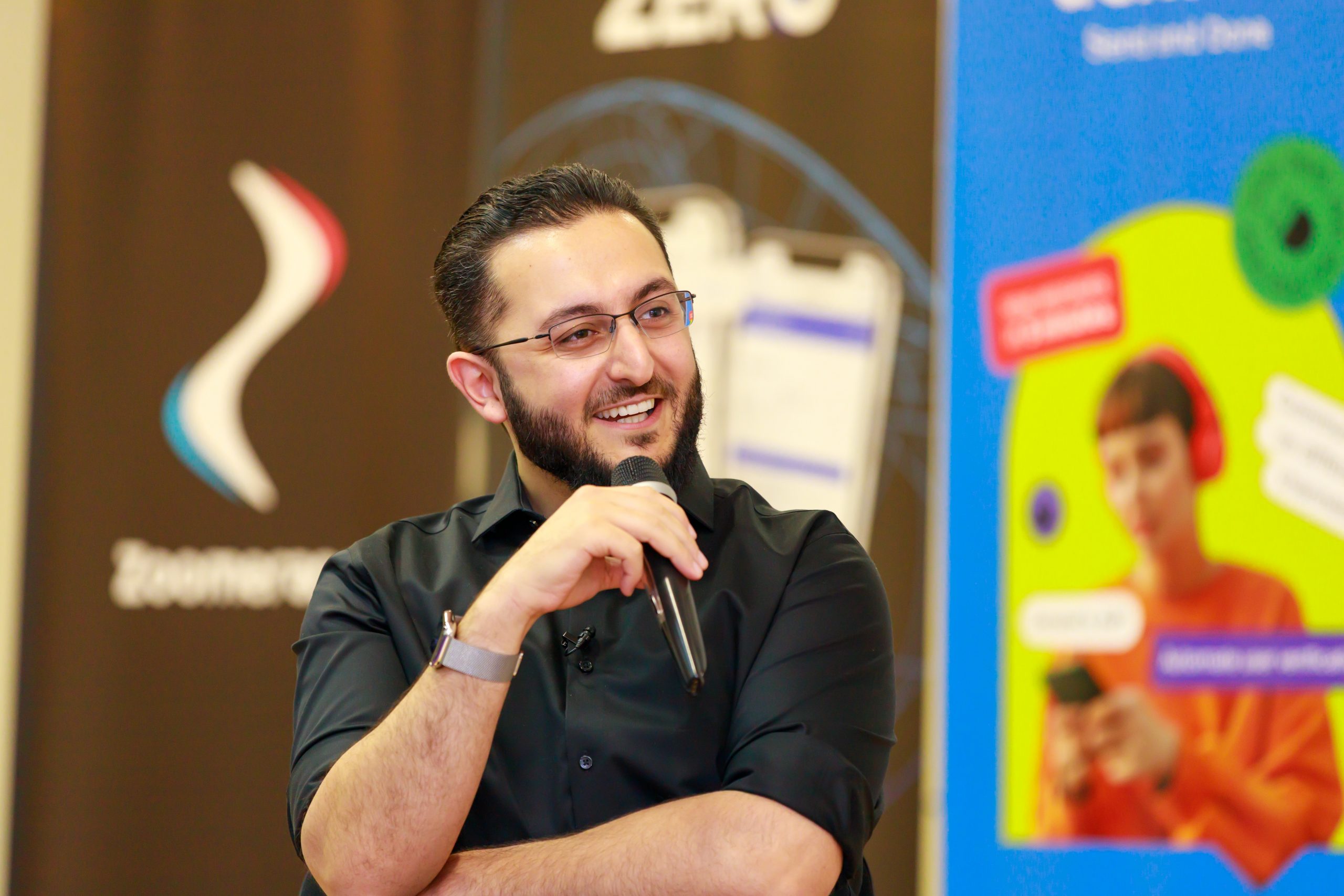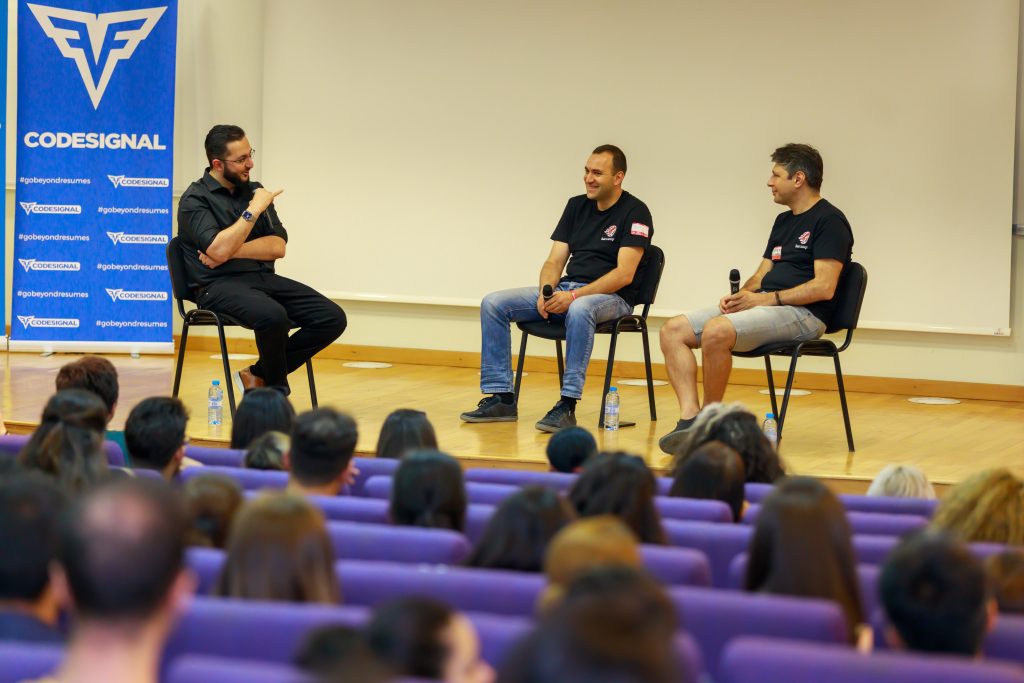
CodeSignal, now worth $500 million, began as a technology-age knowledge startup. The Armenian founders wanted to change the classical model of job searching and hunting, which is no longer effective.
As the co-founder and executive director of the company Tigran Sloyan says, if you want to find a job, you need to submit biographical data with a diploma, experience, and a description of your skills. Meanwhile, especially in the field of IT, what’s written on paper does not always prove that the candidate is a qualified specialist because education and training have been decentralized for a long time and are not under the monopoly of universities.
And universities (even the best ones in the world) can’t work like an exclusive seal, guaranteeing their graduates’ progress just because a person studied there.
And as long as a resume is required for a career, a talented programmer or data scientist without an education finds themselves in an unfair competitive position. And CodeSignal is changing that by providing various assessment tools (tests, interviews) that are automated and help assess applicants’ real abilities, not those summarized on paper.
The automated evaluation is unbiased.
But it is important that CodeSignal is not so much an intermediary between a potential employee and an employer (there are many such intermediary companies), but offers a completely new logic of education and work in the conditions of an open world.
According to Tigran Sloyan, automatic evaluation is the only objective criterion in the new reality, when education is highly democratized. And the most brilliant lessons are even online and available to everyone.
CodeSignal is the first organization that has created an automated knowledge assessment platform, which, by the way, is used not only by the largest companies looking for new employees (Facebook, Netflix, Uber, Zoom, etc.) but also by many American educational institutions.
For example, in the case of a university graduation exam, a large number of graduates take CodeSignal’s quizzes, testing basic programming knowledge. The educational institution does not evaluate its students, CodeSignal does. And that assessment already means a business card, quality, reputation.
Tigran Sloyan explained that in five years they have collected a huge database of candidates, and CodeSignal can even make a ranking of universities. And it also suggests that sometimes famous universities are overrated.
In his speech at this year’s BarCamp, Tigran Sloyan said how important the environment is. And he hopes that the environment of Armenia will change, especially since Armenia is a small country, but has great potential. And the Armenian branch of CodeSignal, where about 40 people work, is also working to integrate that potential into the wider world.
CodeSignal is largely about making connections between an employer and a prospective employee. Is everything built around communication now?
I don’t know if I agree with the sentiment.
I think, yes, historically we lacked objectivity because we lacked data in hiring, and obviously, connections get you places. For example, when it comes to hiring if you don’t know who the best engineers, the best developers, and the best journalists are how else do you find a job?
You need to find someone who knows you, who knows someone else, who can get you in. That’s how it was.
And in the absence of more objective data, more fair practices, and ways to identify people based on what they can do, the driving force so far at least has been very dependent on connections.
But I think that the world is changing.
For example, the idea of our company was that if people have skills and potential, they should be evaluated not by their resumes, but by their abilities. The first thing a hiring manager wants is information on the candidate’s education, a resume that decides everything. And it is quite unfair, because skills are not obtained in traditional ways, say, in universities.
In that case, it all comes down to the right assessment. Is it possible to be objective? After all, even if we are talking about programs that work automatically, you are dealing with people.
I think there’s a lack of objectivity in the world, but I think that’s changing.
For example, at our company, we’re extremely driven to make things fair and objective both for people who are already working there, as well as future “Signalites” as we call them, our team members.
But yes, there is definitely a lack of objectivity, a lack of fairness in the world.
I’m an optimist. I believe that we will create a world in the future in which objectivity is actually a thing, and fairness is a thing, but it’s a difficult challenge.

Photo from BarCamp
Technologies are developing, and the means of influencing people’s consciousness are also developing. For example, the more you hear a lie, the more you will believe it to be true. And how can we talk about objectivity?
Here’s the thing, any type of innovation, any type of change it’s not always positive change. In an ideal world, when you move in a certain direction, you can choose the option of “let’s not do anything, let’s just keep everything the same.”
I don’t think that option works because if you don’t do anything, some things happen to you, so inevitably you get pulled into things. So you have to choose the other option, you’ve got to do something.
Anytime you try to make a change, anytime you try to do something, even with the best of intentions, something somewhere is still going to go wrong.
For example, we talk a lot about how Facebook has some negative influences, let’s say, increasing depression. Why? Because, 2,000 years ago the only thing you compared yourself to was the villager next door, and the villagers next door weren’t that much better off.
Nowadays, Facebook gives you access to compare yourself to the billionaires of the world and it makes you feel worse about your life, so it drives you to depression.
But that wasn’t the intention.
What I’m trying to say is that I truly believe that people like Mark Zuckerburg who started Facebook, started it with the best of intentions but then something somewhere along the way went wrong. It doesn’t mean that you should stop innovating or it doesn’t mean that innovation should go to die. Some things break and then you figure out how to fix those things as well.
The same goes for how social media affects happiness and affects people’s understanding of politics.
Yes, it broke things, the question is, what can we create that fixes it while continuing to innovate to create a better world?
A better world?
A better world. I mean look, the world has become better.
If you think about 500 years ago, life expectancy, I mean, you and I were pretty much supposed to not be alive anymore if we lived 500 years ago.
Look at this phone. 500 years ago, every king would have killed to get a device like this. In that time period, they traveled in carriages for months to go from one city to another, and now we can get there in an hour.
I think we don’t appreciate the royalties that we have today which are all created through technology, and it does create a better world.
But we’re still scratching the surface of the world that we can create.
I think humanity is not ready for such speed.
There is truth to the idea that technology advances at a far faster rate than the human brain can adapt.
But then again, you can create technology that helps to adapt. And yes the question arises: How do we keep technology advancing in a way that doesn’t break our societies?
Our evolution is a very very slow process. Part of the reason that humans have lots of fears: afraid of spiders, afraid of our shadows, sometimes.
You’ve probably noticed that things like lions, there’s a reason that lions look so majestic, the reason is they took millions of years to evolve into this top of the food chain, where they are not afraid of anything or anyone because no one ever hunted them.
Humans jumped from the middle of the food chain to the top of the food chain in a matter of a few hundred years, so we are still somewhat scared and afraid.
Now we are hunter/gatherers who find ourselves at the top of the food chain by evolution and with lots of extremely powerful technology. It’s expected that many of us are scared of it.
That is why I think especially leaders, leaders of companies, have to understand philosophy, have to understand society, have to understand the economy, because those are all interconnected to each other.
You poke something, something else pops up on the other end, and if you don’t have a holistic understanding of how things work, you can unintentionally do things with the power of technology that then you step back and say, “oops, we didn’t mean to.”
This is why that holistic understanding actually plays a big role.
Is it possible for CodeSignal to offer a rating scale not only to programmers but also to other professionals, in the realm of humanities, for example?
Of course. The principles are the same because you need to directly assess a person’s skills, not looking at what university you graduated from or where you worked. And this is true for professionals in all fields, although of course, it is easier to prepare technical tests and interviews, they are more automated.
And for other professions, it is necessary to model a situation where human skills will be seen.
If you want to show the whole world that people can be put to work with their skills, you cannot refuse an automated system.
Interview by Nune Hakhverdyan


Add new comment
Comments by Media.am readers become public after moderation. We urge our readers not to leave anonymous comments. It’s always nice to know with whom one is speaking.
We do not publish comments that contain profanities, non-normative lexicon, personal attacks or threats. We do not publish comments that spread hate.